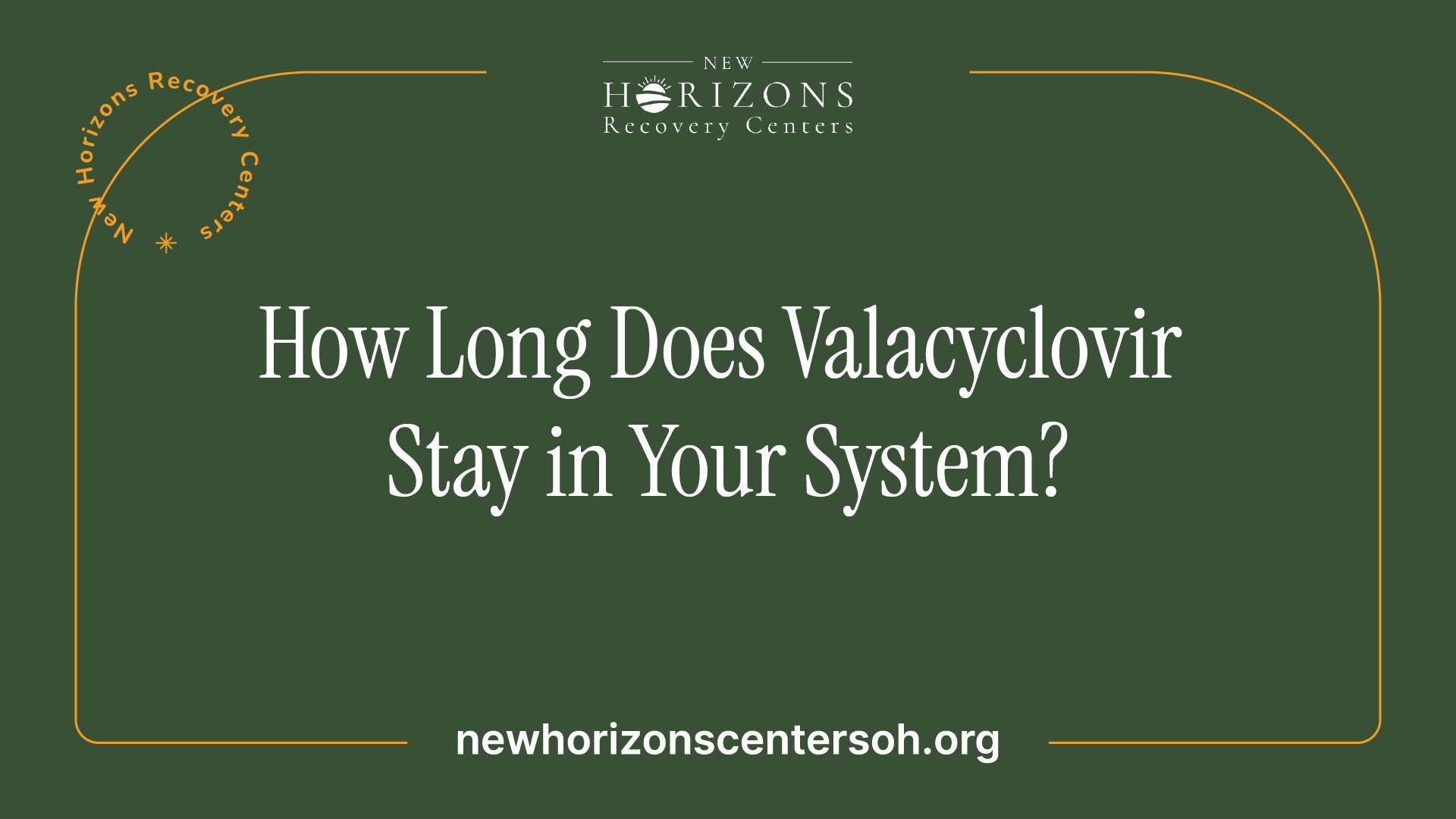Understanding Valacyclovir
Valacyclovir, also known by its brand name Valtrex, is an antiviral medication commonly used to treat various viral infections, including herpes simplex virus (HSV) infections.

Introduction to Valacyclovir
Valacyclovir is an oral medication that belongs to a class of drugs called antivirals. It is primarily used to treat infections caused by the herpes virus, such as genital herpes, cold sores, and shingles. Valacyclovir works by inhibiting the replication of the virus, reducing the severity and duration of outbreaks, and helping to prevent the spread of the virus to others [2].
How Valacyclovir Works
When valacyclovir is ingested, it is rapidly absorbed in the gastrointestinal tract and converted into its active form, acyclovir, in the liver. Acyclovir then works by blocking the action of the viral enzyme DNA polymerase, which is necessary for the replication of the herpes virus. By inhibiting viral replication, valacyclovir helps to control the infection and reduce the symptoms associated with it.
Valacyclovir is most effective when taken at the first sign of an outbreak or during the prodromal phase (tingling or itching sensation) before the appearance of visible symptoms. It is important to note that while valacyclovir can help alleviate the symptoms and reduce the duration of outbreaks, it does not cure the underlying viral infection. The virus remains in the body and may reactivate at a later time.
It is also worth mentioning that the duration of valacyclovir in the body depends on various factors, including kidney function. In adults with normal kidney function, the majority of the drug is eliminated within 3 to 5 hours after administration. The half-life of acyclovir, the active metabolite of valacyclovir, is approximately 2.5 to 3.3 hours, with most of the drug leaving the body within 13.75 to 18.15 hours after the last dose.
Understanding how valacyclovir works and its duration in the body is essential for ensuring safe and effective use of the medication. It is important to follow the prescribed dosage guidelines and treatment duration suggestions provided by your healthcare provider to maximize the benefits of valacyclovir therapy. If you have any questions or concerns about valacyclovir, consult with your healthcare professional for personalized advice and guidance.
Side Effects of Valacyclovir
When considering the use of valacyclovir, it's important to be aware of the potential side effects associated with the medication. These side effects can be categorized into long-term effects and common side effects.
Long-Term Effects
Valacyclovir has the potential to cause long-term side effects, even after stopping treatment with the drug. It's important to monitor for these effects and seek medical attention if they occur. Some long-term effects of valacyclovir include:
- Kidney Problems: Valacyclovir can potentially cause kidney problems, increasing the risk of acute kidney failure in certain individuals Healthline. It's important to discuss any pre-existing kidney conditions with your healthcare provider before starting valacyclovir.
- Changes in Thinking or Behavior: Some individuals may experience changes in thinking or behavior as a result of valacyclovir treatment. It's important to be aware of any unusual changes and report them to your healthcare provider.
- Liver Effects: There have been reported cases of increased liver function tests and hepatitis after FDA approval of valacyclovir Healthline. Regular liver function monitoring is recommended during valacyclovir treatment.
- Hair Loss: Although not commonly reported in studies of the drug, hair loss is listed as a possible side effect of valacyclovir Healthline. If you experience significant hair loss while taking valacyclovir, consult with your healthcare provider.
Common Side Effects
While not everyone experiences side effects from valacyclovir, there are some common side effects that have been reported by individuals taking the medication. These side effects are generally mild and may include:
- Headache: Headache is one of the most commonly reported side effects of valacyclovir Healthline. If you experience persistent or severe headaches while taking valacyclovir, consult with your healthcare provider.
- Nausea: Some individuals may experience nausea or an upset stomach as a side effect of valacyclovir. If this occurs, taking the medication with food may help alleviate these symptoms.
- Dizziness: Dizziness is another possible side effect of valacyclovir. It's important to avoid activities that require alertness until you know how the medication affects you.
- Fatigue: Feeling tired or fatigued can occur as a result of valacyclovir treatment. If you experience excessive fatigue, it's important to rest and prioritize self-care.
- Upset Stomach: Valacyclovir can sometimes cause gastrointestinal disturbances, such as diarrhea or abdominal pain. If these symptoms become severe or persistent, consult with your healthcare provider.
Remember, not everyone will experience these side effects, and some individuals may experience side effects not listed here. If you have concerns or questions about the side effects of valacyclovir, it's important to consult with your healthcare provider for personalized guidance.
Valacyclovir Metabolism
To understand how long valacyclovir stays in your system, it's essential to explore its metabolism. Valacyclovir is an antiviral medication commonly used to treat infections caused by the herpes virus. When taken orally, valacyclovir hydrochloride is rapidly absorbed from the gastrointestinal tract and undergoes a process of conversion in the body.
Absorption in the Body
After oral administration, valacyclovir is efficiently absorbed from the gastrointestinal tract. According to a study involving 12 healthy subjects, the absolute bioavailability of acyclovir, the active form of valacyclovir, was measured at 54.5% ± 9.1% after the administration of a 1-gram oral dose of valacyclovir alongside a 350 mg intravenous acyclovir dose. This indicates that a significant portion of valacyclovir is absorbed and available for conversion to acyclovir in the body.
Conversion to Acyclovir
Valacyclovir is primarily metabolized in the liver, where it is converted into its active form, acyclovir, by the enzyme valacyclovir hydrolase. Some conversion may also occur in the intestines and other organs. Acyclovir is responsible for the antiviral effects of valacyclovir and is the compound that provides therapeutic benefits.
The metabolism of valacyclovir into acyclovir occurs relatively quickly after ingestion, allowing the active compound to be readily available to combat viral infections. It's worth noting that the rate of metabolism and conversion may be influenced by individual factors such as liver function and overall health.
Understanding the metabolism of valacyclovir is essential in determining its duration in the body. The subsequent elimination of acyclovir, the active drug in valacyclovir, also plays a role in how long it remains detectable. For more information on valacyclovir elimination, refer to the section on Valacyclovir Elimination.
Valacyclovir is a medication commonly prescribed for the treatment of herpes infections. It is important to follow the prescribed dosage guidelines and treatment duration suggestions to ensure the safe and effective use of valacyclovir. Consult with your healthcare provider for personalized advice and recommendations.
Factors Affecting Valacyclovir Duration
The duration for which valacyclovir stays in the system can vary depending on several factors. Two key factors that impact the duration are kidney function and individual health factors.
Impact on Kidney Function
Valacyclovir can potentially cause kidney problems, increasing the risk of acute kidney failure in certain individuals. Since the body processes valacyclovir and its active form, acyclovir, primarily through the kidneys, any impairment in kidney function can affect the clearance of the drug from the body.
Renal clearance of acyclovir, the active drug in valacyclovir, is approximately 42% of the total acyclovir apparent plasma clearance. Therefore, individuals with impaired kidney function may experience a longer duration of valacyclovir in their system compared to those with normal kidney function. It is important to consult with a healthcare professional if you have any concerns about your kidney health or if you have a history of kidney disease.
Individual Health Factors
Several individual health factors can also affect the duration of valacyclovir in the system. These factors include age, metabolism, overall health, and the presence of any underlying medical conditions.
Metabolism plays a role in the breakdown and elimination of valacyclovir. Individuals with a fast metabolism may eliminate the drug more quickly from their system compared to those with a slower metabolism. Age can also influence the duration, as metabolism tends to slow down with age.
Overall health and the presence of underlying medical conditions can impact the body's ability to process and eliminate valacyclovir. Certain medical conditions, such as liver disease, can affect drug metabolism and clearance. It is essential to discuss any existing health conditions with your healthcare provider to determine how they may affect the duration of valacyclovir in your system.
While valacyclovir is generally well-tolerated, it is important to follow the prescribed dosage guidelines and treatment duration suggestions provided by your healthcare professional to ensure safe and effective use of the medication. If you have any concerns about the duration of valacyclovir in your system or its potential interactions with other medications, it is always best to consult with a healthcare professional.
Valacyclovir Elimination
Once valacyclovir is ingested, it undergoes various processes of elimination within the body. Understanding the excretion process and the detection of valacyclovir can provide insights into how long it stays in the system.
Excretion Process
Valacyclovir is rapidly absorbed from the gastrointestinal tract and converted into its active form, acyclovir, in the body. Acyclovir is responsible for the antiviral effects of valacyclovir. After oral administration, valacyclovir is extensively metabolized and primarily excreted through the kidneys [3].
The excretion of valacyclovir occurs primarily through the urinary system. After a single 1-gram dose of valacyclovir, approximately 46% of the administered radioactivity was measured in urine over 96 hours. Acyclovir, the active drug, accounted for 89% of the radioactivity excreted in the urine. On average, the majority of valacyclovir leaves the body within 3 to 5 hours after administration, with a half-life of approximately 2.5 to 3.3 hours in adults with normal kidney function.
Detection in the Body
Following the conversion of valacyclovir to acyclovir, the active drug can still be detected in urine and feces for up to four days after taking a 1-gram dose of valacyclovir. Over 96 hours, approximately 47% of the administered radioactivity was measured in feces. The bioavailability of valacyclovir, estimated to be around 54%, indicates that approximately 54% of the ingested dose reaches systemic circulation and various body compartments, including plasma, genital secretions, and cerebrospinal fluid.
It's important to note that individual factors, such as kidney function and overall health, can influence the elimination of valacyclovir from the body. Impaired kidney function may result in a longer elimination time for valacyclovir. If you have any concerns about the duration of valacyclovir in your system, it's recommended to consult with a healthcare professional.
Understanding the excretion process and detection of valacyclovir provides valuable information regarding its presence in the body. For specific dosage guidelines and treatment duration suggestions, refer to our article on safe and effective use of valacyclovir.
Safe and Effective Use of Valacyclovir
When it comes to using valacyclovir, it is important to follow the prescribed dosage guidelines and treatment duration for optimal results. The dose of valacyclovir will vary depending on the specific medical problem being treated [6]. It is crucial to adhere to the instructions provided by your healthcare provider or the directions on the label. Here are some key considerations for the safe and effective use of valacyclovir.
Dosage Guidelines
The dosage of valacyclovir can vary for different patients. Factors such as the strength of the medicine, the number of doses per day, the time between doses, and the duration of treatment determine the amount of medicine to be taken. It is important to take the medication exactly as prescribed by your healthcare provider. Do not adjust the dosage without consulting your healthcare professional.
Valacyclovir can be taken with or without meals, as directed by your healthcare provider. If you have any questions regarding the administration of the medication, do not hesitate to seek clarification from your healthcare provider or pharmacist.
Treatment Duration Suggestions
To ensure effective treatment, it is essential to complete the full course of valacyclovir, even if symptoms begin to improve after a few days. Missing doses or stopping treatment prematurely may lead to incomplete eradication of the infection and potential recurrence. Follow the prescribed treatment duration recommended by your healthcare provider.
The timing of initiating valacyclovir treatment is critical for certain conditions. For example, valacyclovir works best when used within 48 hours after the first symptoms of shingles or genital herpes appear. In the case of recurrent outbreaks of genital herpes, valacyclovir is most effective when used within 24 hours after the symptoms begin to appear [6]. If you experience any symptoms, consult your healthcare provider promptly to determine the appropriate timing for starting valacyclovir treatment.
By strictly adhering to the prescribed dosage guidelines and treatment duration, you can maximize the effectiveness of valacyclovir and promote a safe and successful treatment outcome. If you have any concerns or questions about your valacyclovir treatment, be sure to consult your healthcare provider for personalized advice and guidance.
FAQs
1. What is valacyclovir used for?
Valacyclovir is an antiviral drug commonly prescribed to manage herpes infections by reducing outbreak severity, duration, and viral spread when taken properly.
2. What are common valacyclovir side effects?
Valacyclovir side effects may include headache, nausea, fatigue, and dizziness. Rarely, it may cause kidney issues, liver changes, or behavioral disturbances requiring medical attention.
3. What is the recommended valacyclovir dosage?
Valacyclovir dosage depends on infection type and severity. Doctors may prescribe daily or episodic treatment, with adjustments for kidney function and overall patient health.
4. What are the long-term side effects of valacyclovir?
Long-term side effects of valacyclovir can include kidney strain, liver complications, and behavioral changes. Regular medical supervision is important during prolonged treatment use.
5. How long does valacyclovir stay in your system?
Valacyclovir generally clears within 13.75 to 18.15 hours in healthy adults, though kidney function, dosage, and health conditions can influence elimination time significantly.
Learn How We Can Support Your Recovery Journey
Understanding how medications like valacyclovir affect your body is an important part of managing your health, especially when navigating recovery. At New Horizons Recovery Centers, we combine evidence-based approaches with compassionate care to help individuals address substance use disorders and co-occurring mental health conditions.
Our programs in Ohio and Pennsylvania are designed to provide personalized support, education, and practical strategies to promote long-term wellness. We focus on helping you regain control over your life while ensuring your safety and overall well-being. Contact us today to explore how our dedicated team can guide you toward lasting recovery.
References
[1]: https://www.birchtreerecovery.com
[2]: https://www.hims.com/blog
[4]: https://cabinethealth.com






-ink.jpeg)
